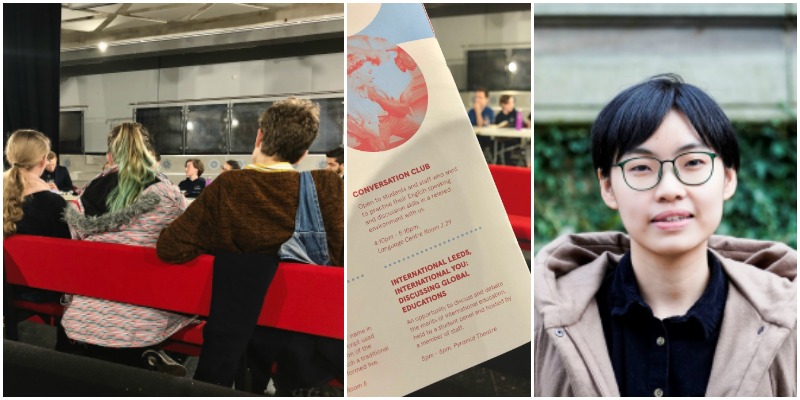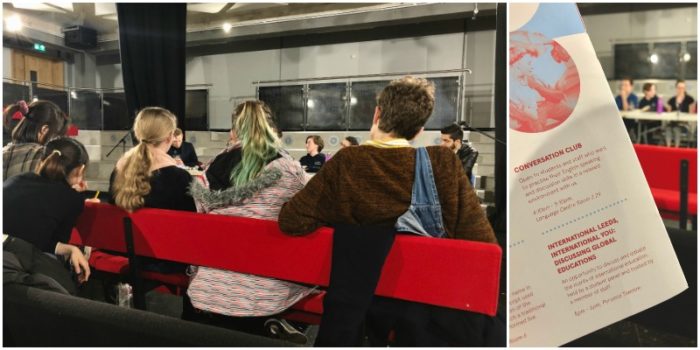International Leeds, International You: Discussing Global Educations

Held by the University of Leeds and the Leeds University Union, the World Unite Festival lasts from 9th to 15th March in order to celebrate the global student community. There are lots of events such as postcard making, culture night, global night market, calligraphy workshops and a trip to Cambridge.
I attended the ‘International Leeds, International You: Discussing Global Educations’ on 10th March, which was chaired by staff from the Careers Centre. A panel of 6 students with different education backgrounds discussed and debated the benefits and challenges of international education. Three students were from the UK and two of them had studied abroad, while the others were international students. The debate consisted of 4 questions in terms of the internationalization of higher education.
The first question was about the value of global student mobility in the student community while integration was encouraged. I think the panel made a lot of good points, covering both the pros and cons of international education in different aspects. When you study abroad, you need to understand the culture, religions and many different things in that country. It may take a long time to get used to culture shock, or even the weather! But it really depends on the person. Meeting people from different cultures helps us be cautious about global issues and reminds us that the world is so big and so small. We have so many differences, but we also share some many common things. Undeniably, there are challenges such as language, employment, homesickness, financial costs and a sense of distance. But more importantly, students themselves should manage their expectations. It is natural that people of similar cultures tend to play together. And even people from the same society can be very different. Being open-minded can be a good way to tackle those challenges.

An audience asked what they thought about the proportion of international students because some countries (like China) did stand out. A student said that if special attention were put on those countries, students from the other countries would also feel isolated. However, the Leeds University Union was really inclusive and did a great job to find a good mix. The events were applicable and open to everyone.
The next topic was a little sensitive because sometimes international education may be considered as a business and international students may need to pay more tuition fees compared with home students. Though the tuition standard is set by the government, the university also needs to manage the student experiences and do not make international students feel like cash-cows. The benefits should be tangible. At the same time, students need to think about their expected learning outcomes because education itself is a product.
The third question was about Brexit. A home student said the uncertainty was negative and many things were put on question marks. That’s why she decided to get a master’s degree in the UK instead of going abroad. Besides, placements are also affected by Brexit. Home students may face the same problems as international students.
The last topic was about global issues such as climate change, coronavirus and hunger. These problems need global solutions and other countries’ involvement. A global student community encourages us to see from different perspectives, which helps us understand the problems better and leads to better solutions. If everyone thinks the same, there will be no solution.
The debate was really amazing and broadened my horizons. I heard voices not only from international students but also from home students and got a deeper understanding of the internationalization of higher education. Being an open-minded and adaptable person is really important especially in the context of studying abroad!
